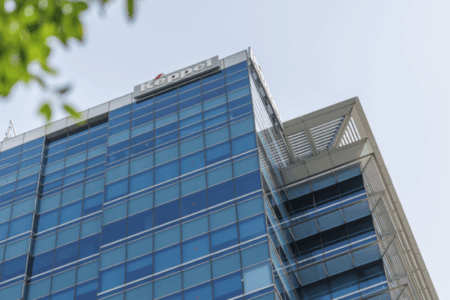The Straits Times Index (SGX: ^STI) has been on a tear.
That is an understatement.
The bellwether blue-chip index has been on an amazing run, rising for 14 days in a row (as of the market close last Thursday).
As the index breaks new all-time highs, the naysayers will invariably warn of overstretched valuations.
The quintessential question is: aren’t you going to sell into this rally?
That sounds reasonable.
But is it really? Let’s talk it through.
You need to be right…..twice
It may sound reasonable to unload your shares to lock in your profit.
After all, it’s natural for investors to “protect their profits” in case share prices come tumbling back down.
As the saying goes, what goes up must come down, right?
Even if you like a stock, you can always choose to repurchase it when share prices decline to more palatable levels.
At least, that’s what some may think.
The problem with selling a stock and then buying it back is that you need to be right not once, but twice!
In essence, you need to decide when to sell the stock near where you think is the top and then decide (again!) on when to buy it back again.
It’s not as easy as it looks.
As the business grows, its valuation and prospects also change along with it.
Hence, the price you set at which to repurchase the shares may change drastically in the coming months or years, depending on how the business has performed.
In short, it’s tough to pinpoint a “correct” entry price once you’ve sold a stock.
Clear case of over-valuation?
The next question comes down to whether a stock is really over-valued, and what type of metric is used to determine this.
Take DBS Group (SGX: D05) for instance.
The lender’s shares have surged by close to 12% since the start of this year to hit an all-time high of S$49.21 as of 24 July.
Based on the bank’s first quarter of 2025 (1Q 2025) financial statements, its net asset value stood at S$23.81 as of 31 March 2025.
Hence, the bank’s price-to-book (P/B) ratio stands at more than two times.
If we observe the 10-year valuation history for DBS Group, shares do seem overvalued at the current level.
DBS’s average P/B ratio over the past decade has hovered around 1.6 times.
However, apart from these raw numbers, investors also need to ask themselves a few questions.
First, is DBS’s book value still rising?
If so, it may be a matter of time the valuation catches up with its long-term average.
Second, assuming you sold DBS’s shares now, when is a good time to buy them back?
Do you wait for the valuation to fall to trough levels of around one time book value, or closer to the long-term average of 1.6 times?
There’s no easy answer to any of the above questions, even as you continue to monitor the business.
By selling and then waiting to buy the shares back, you may inadvertently miss buying DBS again if its shares do not drift down to your target valuation anytime soon.
Missing out on a ton of dividends
There’s another problem as you wait to buy back the shares you sold.
In the meantime, you will be missing out on all the dividends that the stock is paying out.
And that’s also an opportunity cost in itself.
DBS paid out a full-year dividend of S$2.22 in 2024 and has an annualised forward dividend of S$3 per share if you include the capital return dividend of S$0.15 declared in 1Q 2025.
Assuming the bank can pay out its core dividend of S$2.40 per share (i.e. S$0.60 multiplied by four), five years of waiting means you miss out on S$12 per share in dividends alone!
Get Smart: Think carefully before acting
Many stocks have surged in tandem with the Straits Times Index, with many breaking through their 52-week or all-time highs.
However, this achievement alone should not compel you to sell your shares.
Remember that share prices have no upper limit if the business can continue to grow.
If the company in question can continue to post multi-year growth, you may be better off holding on to your shares.
Over the years, you should experience healthy capital appreciation and also enjoy many years of rising dividends.
Tired of articles that just say “do your own research”? Get Smart, our weekly investing newsletter shows you how. You’ll learn simple ways to size up a stock, like what signs to look for and how to know if it’s worth your money. These are tools our team uses, and you can use them too. Sign up here for free and start investing with more confidence.
Follow us on Facebook, Instagram and Telegram for the latest investing news and analyses!
Disclosure: Royston Yang owns shares of DBS Group.





